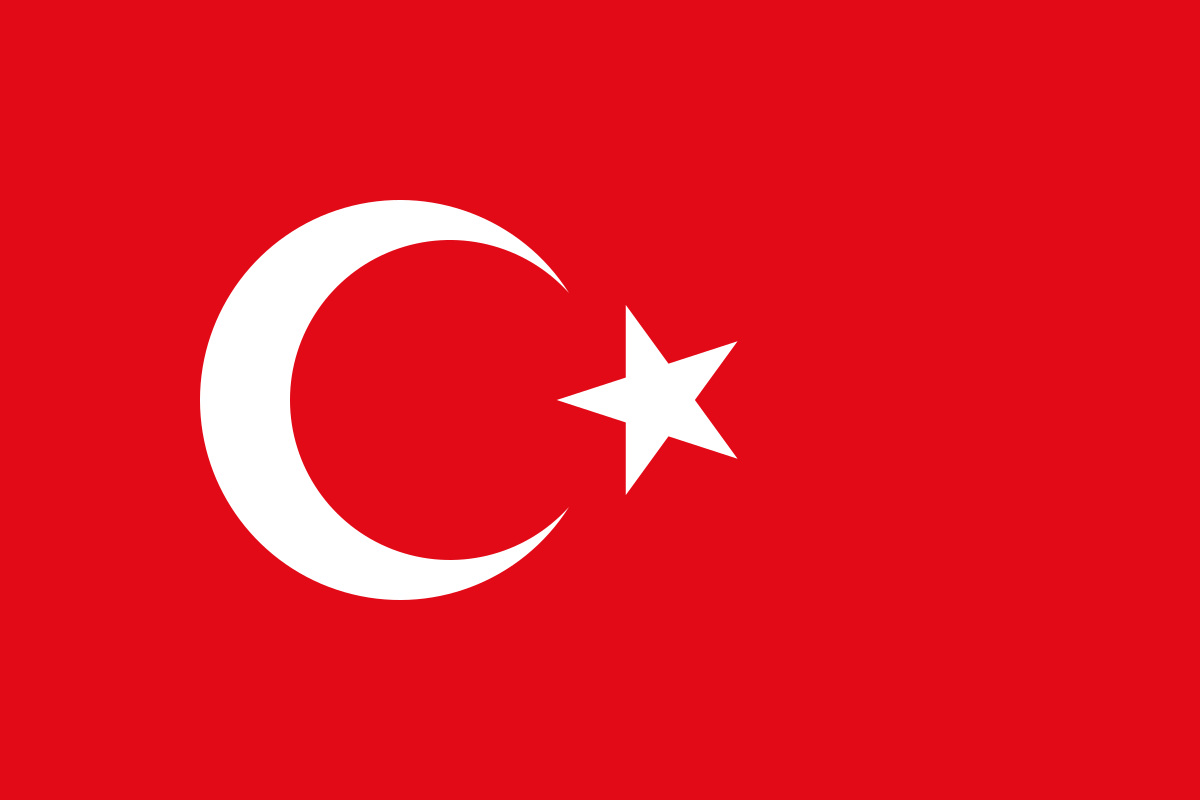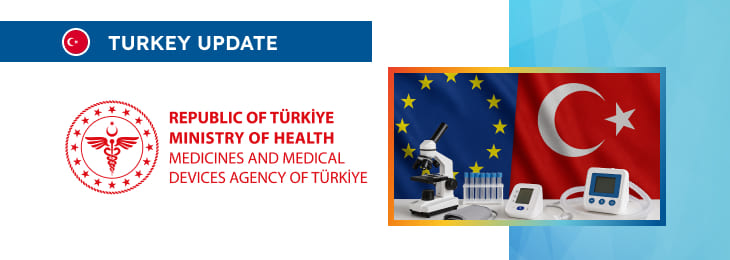The article describes the approach followed by the Turkish regulating authorities in the course of harmonisation of the national legislation in the sphere of medical devices with the relevant European regulations.

Table of content
Context and Legislative Framework
The Department of Medical Device Registration and Coordination of the Turkish Medicines and Medical Devices Agency (TITCK) oversees the national legal environment for medical devices and in vitro diagnostics. The key functions of the authority include maintaining full alignment with the European Union (EU) so that devices lawfully marketed in Türkiye can circulate freely within the EU/EEA and vice-versa.
On 2 June 2021 this objective was met when the Official Gazette No. 31499 (duplicate edition) brought two cornerstone instruments into force:
- Medical Device Regulation – a near verbatim transposition of Regulation (EU) 2017/745 (MDR).
- In Vitro Diagnostic Medical Device Regulation – mirroring Regulation (EU) 2017/746 (IVDR).
These texts replaced the 2011 directive-based rules and introduced the EU’s modern risk-based classification, unique device identification (UDI) and post-market surveillance regimes into Turkish law. Consequently, manufacturers, authorised representatives (ARs), importers and distributors operating in Türkiye now follow essentially the same compliance playbook as their EU peers.

Alignment with EU Amendments Adopted in 2024
In March 2024 the EU adopted Regulation (EU) 2024/1860, introducing targeted amendments to the MDR and IVDR, most notably a fresh obligation to alert authorities to impending shortages and a set of staggered transitional deadlines for legacy products.
Within five months, Türkiye followed the approach and introduced the relevant changes: on 17 August 2024 the Official Gazette No. 32635 published parallel Amendment Regulations drafted by TITCK. The Turkish text tracks the EU language wherever possible, adapting references only where national administrative structures differ.
Key points of the Turkish amendments include:
- A legal basis for advance shortage/discontinuation notifications.
- Clarified transitional arrangements for pre-2021 legacy certificates.
- New market-safeguard tools permitting accelerated import derogations when serious public-health risks arise.
The amendments reaffirm Türkiye’s policy of “dynamic alignment,” i.e., immediate adjustment of national rules after each substantive EU change so that technical dossiers, CE certificates and vigilance reports remain mutually acceptable.
New Obligation to Notify Impending Supply Interruptions
The cornerstone of the 2024 package is the creation of Articles 10/A (medical devices) and 11/A (IVDs). These clauses oblige any economic operator that places a device on the market – manufacturer, authorised representative or importer – to warn TITCK if it reasonably foresees either:
- a temporary disruption in supply (shortage), or
- a permanent cessation of placing a device on the market (discontinuation),
whenever the event could cause serious harm, or a credible risk of serious harm, to patients or public health in Türkiye or in one or more EU Member States. Only custom-made devices are exempt.
According to the regulation, the notification must reach TITCK at least six months before the anticipated start of the shortage or discontinuation, unless an exceptional, unforeseeable situation makes such lead time impossible. TITCK’s rationale is straightforward: early warning allows authorities and clinical stakeholders to organise contingency measures such as stock redistribution, accelerated import licensing or substitution with functionally equivalent products.
Compliance Process for Manufacturers Established in Türkiye
In accordance with the relevant regulatory requirements, domestic manufacturers bear the primary duty to comply.
The procedure comprises three steps:
- Data compilation – Complete the “Manufacturer Information Form” (Annex 1) and the “Product List” Excel worksheet (Annex 2). Mandatory fields include UDI-DI, catalogue number, notified-body certificate reference, risk class, root cause of the interruption, forecast depletion date, estimated duration, current inventory at each distribution tier and any mitigation plan already begun.
- Submission – E-mail both annexes to the authority and attach them to an electronic dossier lodged through TITCK’s Electronic Application System (EBS). The e-mail subject line and EBS title must match to allow automated reconciliation.
- Updates – If circumstances change – for example the shortage proves shorter, longer or more severe than projected – the manufacturer must promptly file updated annexes with an explanatory cover letter.
It is important to mention that except in force-majeure situations, TITCK will reject notices filed later than the six-month deadline.
Duties of Non-Turkish Manufacturers, Authorised Representatives and Importers
Non-EU, non-Turkish manufacturers must appoint a Turkish-based AR, and that AR inherits the full reporting duty. Service agreements should therefore contain robust early-warning clauses ensuring the AR receives timely production forecasts and inventory data. TITCK will direct enforcement at the AR if the reporting obligation is missed.
Manufacturers established in an EU Member State notify the competent authority of their own country under MDR Article 59 or IVDR Article 56. To avoid duplicated bureaucracy, TITCK waives the Turkish notice when the shortage will affect both the EU and Türkiye equally.
However, if the disruption will be confined to Türkiye – for instance owing to local reimbursement changes, customs delays or distributor insolvency – the Turkish importer of record must submit Annex 1 and Annex 2 within the same six-month window.
Importers should therefore monitor their principals’ production plans and local market conditions, and establish internal triggers that flag any Turkey-specific risk of supply interruption.
Enforcement, Transition Timeline and Practical Recommendations
The new obligation entered into force on 17 August 2024 and is therefore already binding. Recognising that supply-chain monitoring systems may need modification, TITCK has announced a facilitative transition period until 31 December 2025. During this phase inspectors will prioritise coaching and corrective-action requests over punitive measures, provided operators demonstrate genuine efforts to comply.
After the transition, non-compliance may attract progressive sanctions under Law No. 7223 on Medical Devices, including administrative fines, public disclosure, compulsory corrective-action plans and, in severe or repeated cases, market withdrawal orders.
TITCK recommends that all economic operators:
- Map their supply chains and identify single-source components.
- Embed a six-month shortage-alert trigger into production-planning software.
- Assign clear internal responsibility for form completion and submission.
- Contractually oblige distributors and service providers to relay early warnings.
- Keep records that evidence unforeseeable events in case a late notice must be justified.
For procedural questions stakeholders are encouraged contact the authority via email. TITCK plans to publish a comprehensive guideline in the second half of 2025 clarifying quantitative thresholds for “serious harm,” the evidentiary standard for force-majeure claims and the electronic data-import format for the Excel annexes. Economic operators are also encouraged to monitor the Agency’s website for further updates.
Conclusion
In summary, the present document describes in detail the approach followed by the Turkish authorities in the course of the ongoing harmonisation of the national legislation with the EU legal framework in order to facilitate cross-border supply of medical devices while ensuring their continued safety and proper performance.
How Can RegDesk Help?
RegDesk is an AI-powered Regulatory Information Management System (RIMS) designed to simplify global compliance for medical device companies. With regulatory intelligence covering 120+ markets, RegDesk helps you prepare and publish global submissions, manage standards, conduct impact assessments, and stay ahead of regulatory changes all from a single, centralized platform. Expanding into new markets has never been easier.

